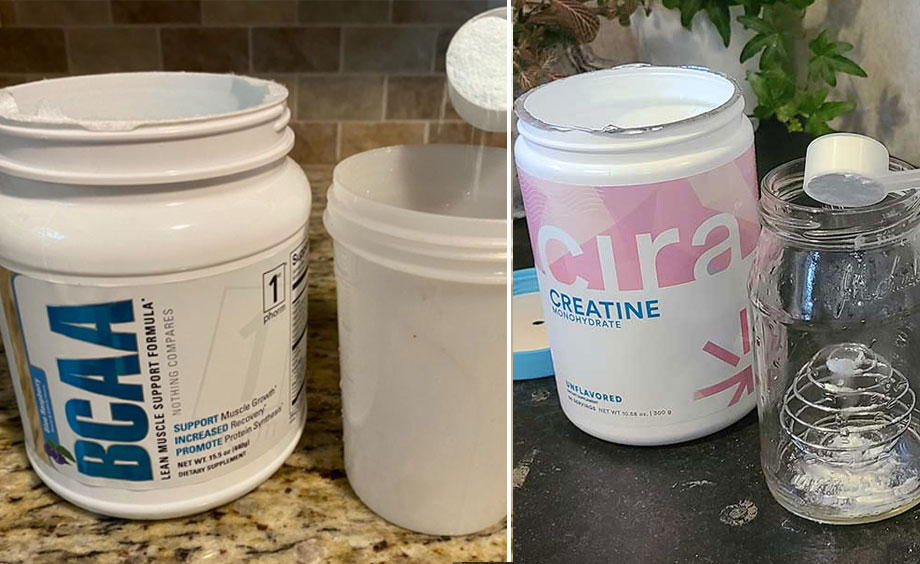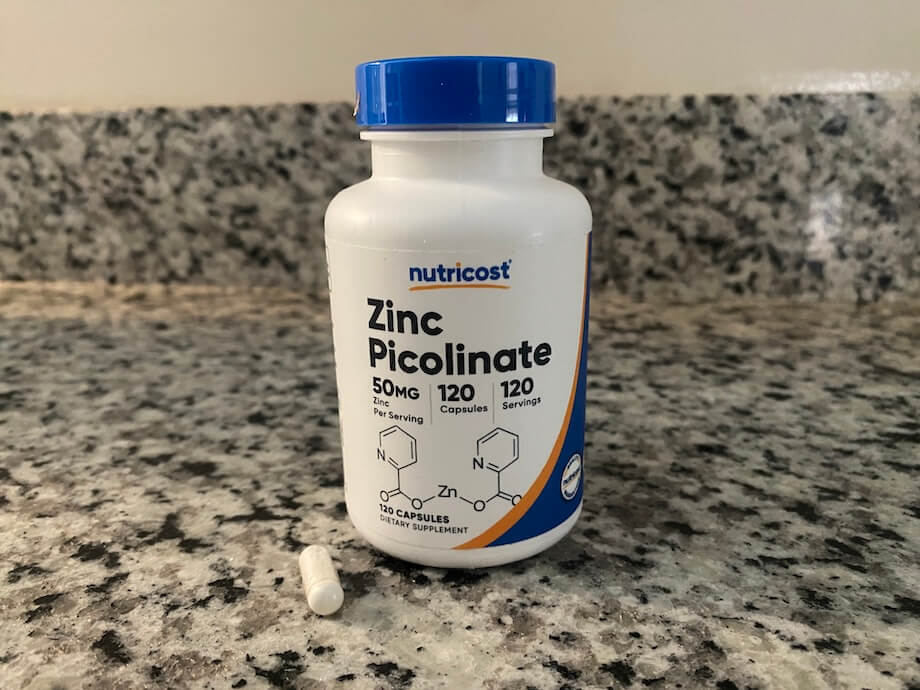Founded on Coop Mitchell’s commitment to look out for others in the fitness community, Garage Gym Reviews continues to build a loyal following through unwavering honesty. All this to say, claiming what lies ahead is as thrilling as the EAA vs BCAA debate would neglect the GGR mission.
But whether you intentionally searched for BCAA vs creatine or accidentally stumbled here, you’re curious. Although we’ve already deeply explored the creatine benefits (such as increased energy and muscle gains) and BCAAs (touted for their anabolic muscle-building properties), we celebrate curiosity at GGR and are all here to learn!
So, no matter how you arrived here, rest assured I’m approaching BCAA vs creatine through a curious and unbiased dietitian lens—you deserve my honest insight to help you make informed consumer decisions.
Medical disclaimer: This article is intended for educational and informational purposes only. It is not intended as a substitute for medical advice. For health advice, contact a licensed healthcare provider.
What Are BCAAs?
Branched-chain amino acids1 (or BCAAs)—leucine, isoleucine, and valine—are three of the nine essential amino acids with a unique branched molecular structure. Unlike non-essential amino acids, your body cannot make BCAAs and must be consumed from high-protein foods or dietary supplements.
BCAAs collectively stimulate muscle protein synthesis2 and suppress proteolysis3 (or protein breakdown) while providing whole-body benefits (detailed below). However, each BCAA (but one in particular) has unique roles and advantages that have fully attracted them as an ergogenic aid.
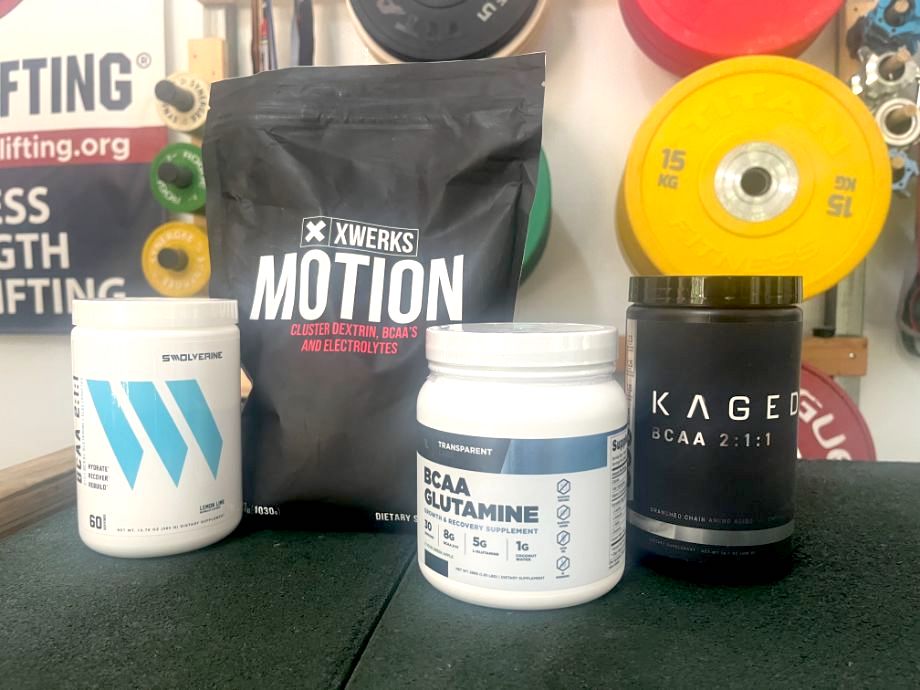
Leucine
Consider leucine as that “one in particular” mentioned above and the ringleader of muscle protein synthesis4, essentially “turning on” the metabolic pathway (known as mTOR5) that controls anabolism (muscle building) and catabolism (muscle breakdown). However, leucine’s impact on muscle protein synthesis depends on the availability of other amino acids—aka the building blocks of protein.
Isoleucine
Isoleucine may not stimulate muscle protein synthesis to the same extent as leucine, but it does help boost glucose4 (the simplest form of carbohydrates) uptake by muscle cells to provide energy. This extra fuel can improve muscular endurance and stamina, as well as help prevent muscle breakdown for indirect net muscle gains.
RELATED: How to Build Muscle
Valine
While valine doesn’t get the attention of its siblings, it’s still essential and aids muscle repair and recovery6, mainly when consumed in the best ratio for BCAAs. Valine also helps boost energy levels and enhance endurance—but maybe not as well as an energy booster as creatine.
What Is Creatine?
Creatine7 is a naturally occurring organic compound found primarily in red meat and seafood. The human body can make creatine from specific amino acids—arginine, glycine, and methionine—mainly in the kidneys, liver, and pancreas7.
RELATED: What is Creatine?
Creatine works by helping your muscles produce adenosine triphosphate (ATP)7 as a quick energy source during anaerobic (without oxygen) conditions. Short-term exercises requiring a lot of power output—like powerlifting and sprinting—rely on creatine to quickly fuel muscles with energy.
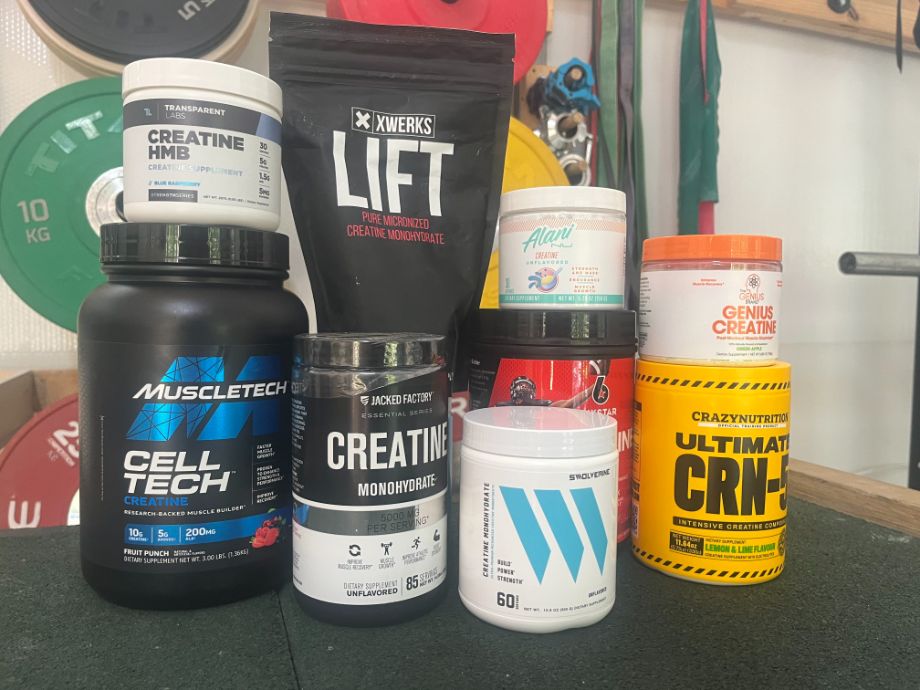
RELATED: Best Creatine
All this to say, creatine supplements are popular among bodybuilders and fitness enthusiasts because of their capacity to enhance ATP and energy production during intense anaerobic exercises. Among various types of creatine, creatine monohydrate is the most commonly studied.
BCAA Benefits
We’ve touched upon the essential roles above, and Destini Moody, RD, CSSD, LD, a sports dietitian and head of performance nutrition for the NBA G League Ignite, thoroughly covered BCAA benefits. Here are the key takeaways.
Helps Support Muscle Growth
BCAAs are crucial for muscle protein synthesis, so supplementing with them—mainly if your dietary protein intake is insufficient—can support muscle tissue growth and repair. However, BCAA supplements alone aren’t enough to build your lean muscle dreams without the other six EAAs.
RELATED: Protein Deficiency
Helps Enhance Exercise Performance
Muscle fatigue often hinders athletic performance, and 2020 research in the Journal of Human Kinetics8 indicates that BCAAs may extend the time to exhaustion. This is likely because BCAAs can reduce serotonin, a hormone and neurotransmitter responsible for inducing fatigue during exercise1.

Aids In Muscle Recovery and Soreness
While BCAAs were once isolated and praised for their muscle-building properties, the body requires all essential amino acids for maximum muscle protein synthesis. Now, post-workout recovery is “where BCAAs shine!” according to Dr. Bob Iafelice, nutritionist, registered dietitian, and supplements expert.
In our best BCAA supplements round-up, Iafelice explains, “Systematic reviews of clinical trials provide convincing evidence that BCAAs lower markers of muscle damage9 and reduce delayed-onset muscle soreness (DOMS)10 following resistance training or exhaustive endurance exercise.”
Overall, BCAAs may help accelerate muscle recovery after intense and frequent training, particularly for minor to moderate muscle damage.
Supports Fat Loss
A small 2016 randomized controlled trial11 shows that BCAA supplementation, paired with a hypocaloric diet (low calories) and resistance training, helps with fat loss while preserving lean muscle mass. Another trial conducted by the International Journal for Vitamin and Nutrition Research 12 supports BCAA’s role in fat loss but, again, while in a calorie deficit.
Provides Whole Body Benefits
While primarily used to spur muscle growth and recovery, BCAAs have essential functions in the nervous and immune systems, blood sugar control, and cell growth13. Also, because changes in BCAA metabolism are linked to chronic health issues—including diabetes, cancer, and heart failure—they may also impact disease prevention.14
Creatine Benefits
Of the hundreds of supplements available, creatine (particularly creatine monohydrate) is one of the most, if not the most, research-backed, according to the International Society of Sports Nutrition (ISSN)7. Here’s how creatine can benefit your fitness and health.
RELATED: How to Use Creatine
Increases Muscular Energy and Performance
At the core of creatine’s benefits is the ability to generate rapid muscle energy. Maximizing muscle creatine is highly effective for boosting energy and power during intense exercise, leading to improved sprinting, heavier lifting, increased reps, and faster muscle growth.
As the cherry on top, the ISSN7 crowns creatine as the most effective ergogenic nutritional supplement for increasing high-intensity exercise capacity. Despite a 2023 meta-analysis15 suggesting creatine does not improve endurance, another 2023 review16 reminds us that endurance races are often performed through repeated surges at maximum intensities.
Improves Muscle Strength, Power, and Size
Creatine supplementation, known to enhance repetitive and high-intensity exercise performance by up to 20%, is commonly recommended for power and strength athletes.7 Clinical research17 shows long-term use increases muscle strength and size, including in lower limb exercises18 lasting less than three minutes.
Research also shows older adults who engage in resistance training programs and supplement with creatine see improvements in muscle mass and strength19. Creatine supplements have even been shown to enhance strength in individuals with muscular dystrophy, a condition marked by muscle weakness.

Supports Muscle Recovery and Injury Prevention
The ISSN reports that creatine users experience less muscle cramping, tightness, strains, and pulls7. The ISSN also suggests athletes who take creatine, compared to those who don’t, during training and competition have lower incidences of injuries.
Creatine supplementation may help reduce muscle damage and enhance recovery from intense training. So, naturally, creatine is one of the best muscle recovery supplements.
Offers Neuroprotection Benefits
Creatine has been shown to help protect the brain and spinal cord during injuries, especially when blood supply is limited7. Creatine supplementation may further reduce the severity of traumatic brain and spinal cord injuries, so much so that ISSN encourages all high-risk athletes to consider taking it.
Supports Overall Health
Although a staple among bodybuilders and fitness enthusiasts, a 2021 review20 highlights other beneficial roles of creatine in health and disease:
- May help lower the risk of chronic conditions such as heart disease and specific types of cancer
- May help minimizes bone loss
- May help enhances cognitive and mental health
- May help bolster the immune system
- May help support healthy aging, longevity, and independence
(Just to name a few!)
The athletic and health benefits of BCAAs and creatine are intriguing, but let’s explore who may best fare before finalizing your checkout.
Who Should Take BCAAs?
BCAAs can’t beat high-protein foods or essential amino acid supplements for muscle and overall benefits. However, BCAAs may provide the most benefit to the following consumers:
- Vegetarians, vegans, individuals in a calorie deficit, and other consumers who may fall short of essential and branched-chain amino acid intake
- Athletes looking for muscle recovery support
- Exercises who regularly experience muscle soreness (although the research is inconclusive here)
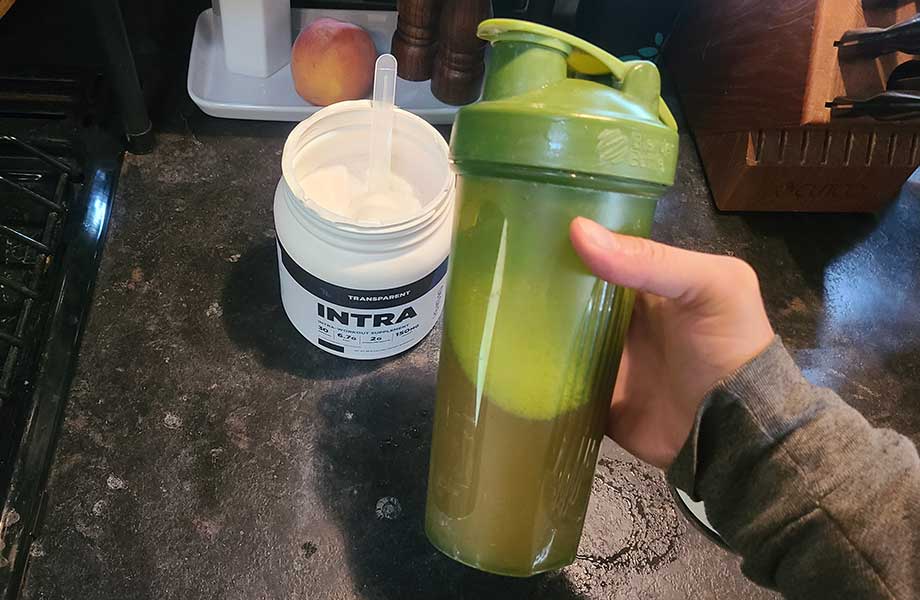
Who Shouldn’t Take BCAAs?
Both sides of the story should be told, especially as more potential side effects of amino acid supplements21 come to light. Specific to BCAAs, the following populations should approach BCAAs with caution:
- People managing diabetes
- Patients with neurological and psychiatric disorders
- Individuals with liver disease
Ultimately, especially if managing a health condition, BCAA use should be guided by your healthcare team. This rings true for all dietary supplements, creatine included.
Who Should Take Creatine?
Considering creatine? Here’s who should really consider taking it:
- Vegetarians, vegans, and individuals with limited red meat and fish intake
- High-intensity and competitive athletes
- Fitness enthusiasts
- Younger athletes
- Aging adults
- Basically, everyone…
Seriously. Even if you aren’t a high-performance athlete or bodybuilder, creatine supplementation can help enhance the results of your training program and improve your overall health at any stage of life.20

Who Shouldn’t Take Creatine?
While the ISSN confirms short and long-term creatine supplementation is safe for individuals of all ages, potential creatine side effects, albeit mild and temporary, should be noted.
The ISSN reports the most common side effect of creatine supplementation is weight gain, primarily from water retention and increased lean mass. Higher creatine doses may cause stomach discomfort, and very high concentrations may affect liver and kidney function.
Mitigate side effects by skipping the creatine loading phase, taking lower (around 3 to 5 grams) over higher (10 grams or more) doses daily, and staying hydrated. However, always consult your doctor for safe guidance.
BCAA vs Creatine: Final Thoughts
A known fact about supplements that most nutrition experts agree on: these products can’t do the heavy lifting for your fitness and health journey. To truly succeed, you’ll need to consistently prioritize a balanced diet, intentional training, and proper recovery.
And while you shouldn’t solely rely on supplements, they absolutely can and do have their time and place. Let’s recap BCAA vs creatine based on the latest findings:
- Since BCAAs are essential amino acids you must obtain in your diet, they can serve as a convenient option if dietary protein and calories are low.
- Creatine is primarily sourced from red meat and fish, and plant-forward dieters may require supplementation.
- BCAAs (and all amino acids) are essential for muscle growth, but recent research hints their main benefit is muscle recovery.
- Creatine offers a quick energy boost to leverage athletic performance with proven muscle-building and recovery benefits.
- Both BCAAs and creatine may benefit health beyond your fitness endeavors, such as playing a role in disease prevention and promoting longevity.
Ultimately, the choice is yours (ideally guided by a healthcare professional, especially if managing a health condition). Also, remember as research and your goals evolve, so can what’s in your supplement stacks.
While we don’t like to pick favorites, we’ll leave you with this fact-based thought: a 2022 meta-analysis22 warns the benefits of BCAAs should be interpreted with caution, and the ISSN supports creatine supplementation7 throughout the lifespan.
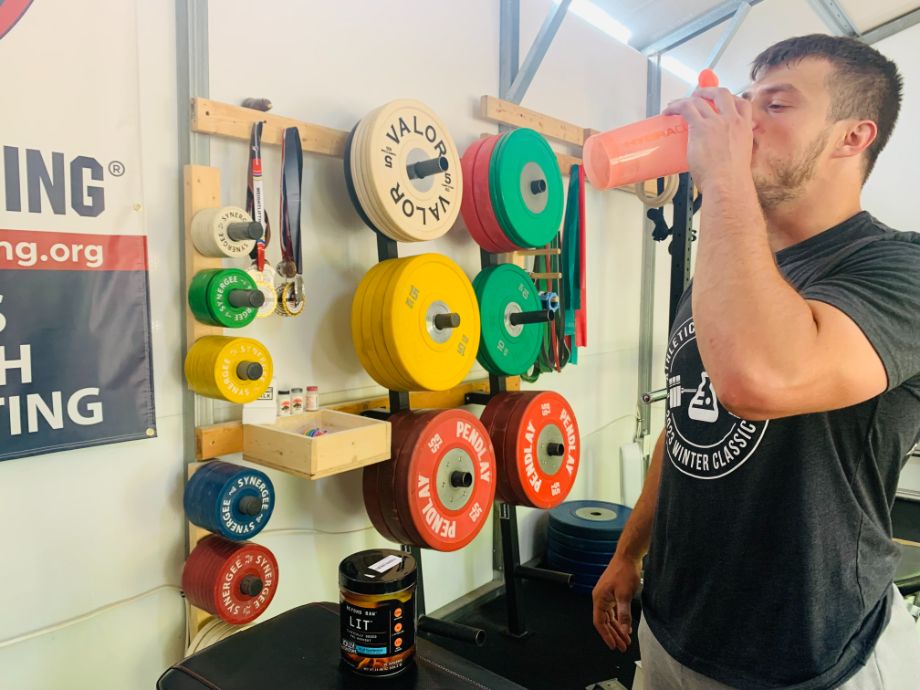
BCAA vs Creatine: FAQs
Which is better for muscle growth, BCAA or creatine?
Because all amino acids are the building blocks of protein, branched-chain amino acids support muscle growth and recovery over creatine. Think of creatine more in terms of your athletic performance, rather than a mass-builder.
Should you take creatine and BCAA together?
While mixing BCAAs and creatine together is likely safe, ensure they support your goals. The majority of supplement aficionados prefer to take pre-workout creatine and then cap off their training session with BCAAs for post-workout recovery.
RELATED: Best Pre-Workout with Creatine
Can BCAA build muscle?
Although BCAAs play a critical role in muscle protein synthesis, you must consume all essential amino acids to build muscle, among other factors like training heavily, intentionally, and consistently.
Is it OK to take BCAA everyday?
While taking BCAA supplements every day is mostly safe, it’s likely unnecessary if you meet your daily protein needs. Ultimately, consider the potential BCAA side effects and whether it’s worth the spend.
Should I take BCAA before or after workout?
Taking BCAAs before your workout may boost energy and hydration and prevent muscle breakdown, and when taken after your workout, it may support muscle gain. However, it’s best to stress less about when to take BCAA and focus more on getting enough protein and BCAAs from dietary sources.
These statements have not been evaluated by the Food and Drug Administration. This product is not intended to diagnose, treat, cure, or prevent any diseases.
References
- Holeček M. Branched-chain amino acids in health and disease: metabolism, alterations in blood plasma, and as supplements. Nutr Metab (Lond). 2018 May 3;15:33. doi: 10.1186/s12986-018-0271-1. PMID: 29755574; PMCID: PMC5934885.
- Mann G, Mora S, Madu G, et al. Branched-chain Amino Acids: Catabolism in Skeletal Muscle and Implications for Muscle and Whole-body Metabolism. Front Physiol. 2021;12:702826. Published 2021 Jul 20. doi:10.3389/fphys.2021.702826
- Bell RA, Al-Khalaf M, Megeney LA. The beneficial role of proteolysis in skeletal muscle growth and stress adaptation. Skelet Muscle. 2016 Apr 6;6:16. doi: 10.1186/s13395-016-0086-6. Erratum in: Skelet Muscle. 2016;6:19. PMID: 27054028; PMCID: PMC4822268.
- Zhang S, Zeng X, Ren M, et al. Novel metabolic and physiological functions of branched chain amino acids: a review. J Anim Sci Biotechnol. 2017;8:10. Published 2017 Jan 23. doi:10.1186/s40104-016-0139-z
- Yoon MS. mTOR as a Key Regulator in Maintaining Skeletal Muscle Mass. Front Physiol. 2017 Oct 17;8:788. doi: 10.3389/fphys.2017.00788. PMID: 29089899; PMCID: PMC5650960.
- National Center for Biotechnology Information. PubChem Compound Summary for CID 6287, Valine. https://pubchem.ncbi.nlm.nih.gov/compound/Valine.
- Kreider RB, Kalman DS, Antonio J, et al. International Society of Sports Nutrition position stand: safety and efficacy of creatine supplementation in exercise, sport, and medicine. J Int Soc Sports Nutr. 2017;14:18. Published 2017 Jun 13. doi:10.1186/s12970-017-0173-z
- AbuMoh’d MF, Matalqah L, Al-Abdulla Z. Effects of Oral Branched-Chain Amino Acids (BCAAs) Intake on Muscular and Central Fatigue During an Incremental Exercise. J Hum Kinet. 2020;72:69-78. Published 2020 Mar 31. doi:10.2478/hukin-2019-0099
- Rahimi MH, Shab-Bidar S, Mollahosseini M, et al. Branched-chain amino acid supplementation and exercise-induced muscle damage in exercise recovery: A meta-analysis of randomized clinical trials. Nutrition. 2017 Oct;42:30-36. doi: 10.1016/j.nut.2017.05.005. Epub 2017 May 18. Erratum in: Nutrition. 2017 Dec 22;: PMID: 28870476.
- Fedewa MV, Spencer SO, Williams TD, et al. Effect of branched-Chain Amino Acid Supplementation on Muscle Soreness following Exercise: A Meta-Analysis. Int J Vitam Nutr Res. 2019 Nov;89(5-6):348-356. doi: 10.1024/0300-9831/a000543. Epub 2019 Apr 2. PMID: 30938579.
- Dudgeon WD, Kelley EP, Scheett TP. In a single-blind, matched group design: branched-chain amino acid supplementation and resistance training maintains lean body mass during a caloric restricted diet. J Int Soc Sports Nutr. 2016 Jan 5;13:1. doi: 10.1186/s12970-015-0112-9. PMID: 26733764; PMCID: PMC4700774.
- Novin ZS, Ghavamzadeh S, Mehdizadeh A. The Weight Loss Effects of Branched Chain Amino Acids and Vitamin B6: A Randomized Controlled Trial on Obese and Overweight Women. Int J Vitam Nutr Res. 2018 Feb;88(1-2):80-89. doi: 10.1024/0300-9831/a000511. Epub 2019 Mar 6. PMID: 30841823.
- Jäger R, Kerksick CM, Campbell BI, et al. International Society of Sports Nutrition Position Stand: protein and exercise. J Int Soc Sports Nutr. 2017 Jun 20;14:20. doi: 10.1186/s12970-017-0177-8. PMID: 28642676; PMCID: PMC5477153.
- Neinast M, Murashige D, Arany Z. Branched Chain Amino Acids. Annu Rev Physiol. 2019;81:139-164. doi:10.1146/annurev-physiol-020518-114455
- Fernández-Landa J, Santibañez-Gutierrez A, Todorovic N, et al. Effects of Creatine Monohydrate on Endurance Performance in a Trained Population: A Systematic Review and Meta-analysis. Sports Med. 2023 May;53(5):1017-1027. doi: 10.1007/s40279-023-01823-2. Epub 2023 Mar 6. PMID: 36877404.
- Forbes SC, Candow DG, Neto JHF, et al. Creatine supplementation and endurance performance: surges and sprints to win the race. J Int Soc Sports Nutr. 2023 Dec;20(1):2204071. doi: 10.1080/15502783.2023.2204071. PMID: 37096381; PMCID: PMC10132248.
- Willoughby DS, Rosene J. Effects of oral creatine and resistance training on myosin heavy chain expression. Med Sci Sports Exerc. 2001 Oct;33(10):1674-81. doi: 10.1097/00005768-200110000-00010. PMID: 11581551.
- Lanhers C, Pereira B, Naughton G, et al. Creatine Supplementation and Lower Limb Strength Performance: A Systematic Review and Meta-Analyses. Sports Med. 2015 Sep;45(9):1285-1294. doi: 10.1007/s40279-015-0337-4. PMID: 25946994.
- Chilibeck PD, Kaviani M, Candow DG, Zello GA. Effect of creatine supplementation during resistance training on lean tissue mass and muscular strength in older adults: a meta-analysis. Open Access J Sports Med. 2017 Nov 2;8:213-226. doi: 10.2147/OAJSM.S123529. PMID: 29138605; PMCID: PMC5679696.
- Kreider RB, Stout JR. Creatine in Health and Disease. Nutrients. 2021;13(2):447. Published 2021 Jan 29. doi:10.3390/nu13020447
- Holeček M. Side effects of amino acid supplements. Physiol Res. 2022;71(1):29-45. doi:10.33549/physiolres.934790
- Martinho DV, Nobari H, Faria A, et al. Oral Branched-Chain Amino Acids Supplementation in Athletes: A Systematic Review. Nutrients. 2022 Sep 27;14(19):4002. doi: 10.3390/nu14194002. PMID: 36235655; PMCID: PMC9571679.


